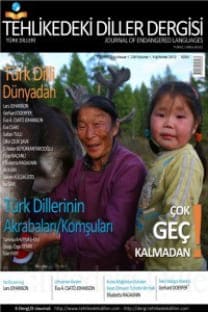Finlandiya’daki Tatar Dilinin Korunması ve Eğitim Faaliyetleri
Finlandiya’daki Tatar topluluğu, bir yüzyıldan fazla bir süredir Tatar dilinde düzenli faaliyetler düzenlemekte ve eğitim vermektedir. Bu etkinlikler, Tatarca konuşanların daha erken çocukluk döneminden itibaren dillerini öğrenmelerini, geliştirmelerini ve aktarmalarını desteklemektedir. Bugün Helsinki ve Tampere’deki İslami cemaatler, kültürel dernekler ve spor organizasyonları, çok çeşitli ortak etkinlikler ve projeler için tüm yaş gruplarından konuşmacıları bir araya getirmektedir. Örneğin bir anaokulu, hafta sonu okulu, yaz kampı, spor ve kültür toplantıları, edebiyat tartışma grubu ve emekliler kulübü, hem ağırlıklı olarak Helsinki bölgesinden hem de Finlandiya’nın diğer bölgelerinden ve yurtdışından Tatarları bir araya getirmektedir. Yapılan faaliyetler arasında bir koro ve tiyatro grubu bulunmaktadır; müzik ve drama, Finlandiya’daki tüm Tatar etkinliklerinin hala önemli bir parçasıdır. Tatar topluluğu ayrıca öğrenme materyalleri, kitaplar ve Mähallä Habärläre ‘Cemiyet Haberleri’ adlı bir dergi yayınlamaktadır.
Anahtar Kelimeler:
Finlandiya’daki Tatarlar, Finlandiya, dil desteği, dilin korunması, diaspora dili, kültürel faaliyetler, dil eğitimi, dil aktarımı
Tatar Language Preservation Strategies and Educational Activities in Finland
The Tatar community in Finland has for more than a century organised regular activities and education in Tatar language. These activities support and encourage the Tatar speakers from early childhood to old age to learn, use and transmit their language. Today the Islamic congregations in Helsinki and Tampere and the cultural and sports associations gather speakers from all age groups for many kinds of events and projects. For instance a kindergarten, weekend school, summer camps, sports and cultural gatherings, online meetings and a club for pensioners bring together Tatars not only from the Helsinki area but also from other parts of Finland and abroad. Earlier activities include a choir and theatre group; music and drama are still important elements in all Tatar events in Finland. The Tatar community further publishes learning materials, books and a magazine, Mähallä Habärläre ‘Community News’.The Tatars in Finland have always followed very closely national and international social and technical developments, adapting their language preservation and support activities to a changing world; for instance, during the Covid-19 pandemic many events and activities moved into the internet. Present challenges reflect the tendencies both globally and in the Finnish society: securing the continuation of events and activities; developing and making Tatar events and materials more attractive to children, teenagers and young adults; providing interesting books and texts for reading and learning; and using new technologies to transmit the language to the following generations. This article, based on an indepth interview with Gölten Bedretdin, chairwoman of the Finnish Islamic Congregation with several decades of experience in organisational work for the Tatar community in Finland, presents a general overview of the current situation of the Tatar language preservation and educational activities in Finland. The topic and current period have until now been little documented.
Keywords:
Finnish Tatars, Finland, language support, language preservation, minority language, cultural activities, education, language transmission,
___
- Alis, Abdulla & Bedretdin, Gölten & Yafay Nogmanov, Kamer (2020): Äkiyätlär ilendä: satukirja. [In the fairy tale land]. Helsinki: Suomen Islam-seurakunta.
- Baibulat, Muazzez (2004): Tampereen Islamilainen Seurakunta: juuret ja historia. Tampere İslam Mahallesı: Nigızı ve tarihı. The Tampere Islamic Congregation: the Roots and History. Tampere: Tampereen Islamilainen Seurakunta.
- Başkarma (2002). Mişär Tatar – Halîk Köyläre. Music CD. Helsinki: Akbazar Oy. https://www.youtube.com/channel/UCwQY88PK25rL7J9KE0PHEZA
- Bedretdin, Kadriye (2011): Tugan tel. Kirjoituksia Suomen tataareista. [Native language. Writings about the Finnish Tatars]. Helsinki: Suomen Itämainen Seura.
- Belyaev, Ramil (2017): Татарская диаспора Финляндии: вопросы интеграции и сохранения идентичности. [The Tatar diaspora in Finland: questions about integration and preserving identity]. Helsinki: University of Helsinki. PhD thesis.
- Bokpil websites: https://bokpil.eu/tt/ and https://villa.bokpil.eu/tt/
- Eroa kirkosta [Leave the Church]: https://eroakirkosta.fi/
- Finnish Islamic Congregation: http://tatar.fi/
- Finnish Islamic Congregation (2018). Süzlär dönyası – Sanojen maailma – The world of words. Helsinki: Suomen Islam-seurakunta.
- Finnish Islamic Congregation (2016 – 2020). Ana tele 1-6. Helsinki: Suomen Islam-seurakunta.
- Finnish Islamic Congregation (2014). İzge miras. Documentary film.
- Finnish Islamic Congregation (2011). Mäçetkä iltkän yul. Documentary film.
- Halen, Harry & Martikainen, Tuomas (2016): Finland. Muslim Tatar minorities in the Baltic Sea region. Svanberg, I. & Westerlund, D. (eds). Leiden: Brill. 86–104.
- Leitzinger, Antero (2006): Suomen tataarit : vuosina 1868-1944 muodostuneen muslimiyhteisön menestystarina. [The Finnish Tatars: the success story of a Muslim community founded 1868/1944). Helsinki: East-West Books.
- Leitzinger, Antero (1996): Mishäärit – Suomen vanha islamilainen yhteisö, Helsinki: Kirja- Leitzinger. Samaletdin, Derya (n.d.): Künegüler. Helsinki: Suomen Islam-seurakunta.
- Suomen Islam-seurakunta (2016 – 2020). Ana tele 1-6. Helsinki: Suomen Islam-seurakunta. 15
- Samaletdin, Derya (n.d.). Künegüler. Helsinki: Suomen Islam-seurakunta.
- Stahlberg, Sabira (2020). Multicoloured language. Helsinki: Bokpil.
- Svanberg, Ingvar; Ståhlberg, Sabira; Bekkin, Renat (2020). “Horsemeat in the culinary traditions of the Mishär Tatar diaspora in the eastern Baltic Sea region: cultural and historical aspects”. Journal of Ethnic Foods 7:38, p. 2–11.
- Tukay, Abdulla (2009). Su anası. Vedenhaltijan kampa. Nasretdin, Fazile; Nisametdin, Feride;Neuvonen, Marja.; Korolainen, Tuula; Nasretdin, Tarik (eds.) Järvenpää: Yabalak grp.
- Yabalak dictionary: https://yabalak.fi/
- Yabalak group (2007): Äylän-bäylän. Music CD with texts. Helsinki: Yabalak grp.
- Başlangıç: 2012
- Yayıncı: Ülkü ÇELİK ŞAVK
Sayıdaki Diğer Makaleler
Finlandiya’daki Tatar Dilinin Korunması ve Eğitim Faaliyetleri
Gölten BEDRETDİN, Sabira STAHLBERG
Tehlikedeki Diller için İnternet Tabanlı Kaynaklar ve Olanaklar
Соборная мечеть Санкт-Петербурга в фотографиях и открытках
Tatarca Kolay Okunan Kitaplar: Dil Öğrenimi, Okuma Geliştirme ve Tehlikedeki Diller için Destek
Sabira STAHLBERG, Fazile NASRETDİN
Dört Dil Arasında Gezinen Estonya Tatar Aileleri
İçindekiler (TDD JofEL 19 Yaz Summer 2021)
Sunuş: Tatar Dili Koruma Stratejileri ve Yenilikçi Uygulamalar
Estonya Tatar Kimlik İnşasında Dilin ve Dinin Rolü
Avustralya‘da Tatar Toplumu ve Tatarca Eğitimi
